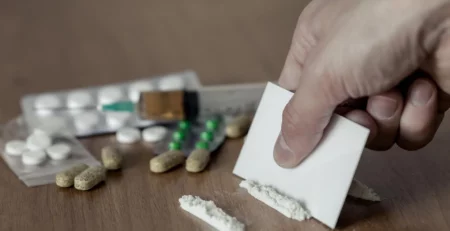30 Recovery Meeting Topics of All Kinds
Discussion Provoking Ideas and Topics for Recovery Meetings
The recovery journey isn’t a one-size-fits-all undertaking. While Alcoholics Anonymous (AA) and other 12-step programs have provided invaluable group member support, other groups also cover similar recovery meeting topics, covering broader needs and perspectives.
Two of the fastest-growing community support groups are SMART Recovery, which uses science-based cognitive strategies, and Dharma Recovery, which uses Buddhist principles as a touchpoint.
The Icarus Behavioral Health Nevada team agrees that support groups are a necessary part of the recovery journey. We find them especially effective when paired with an outpatient program that covers individual therapy.
In our experience, recovery groups integrate with our professional individual and group therapy services well because people with strong support systems are better at recognizing the early warning signs of a relapse. As a result, they’re quicker to pivot to their aftercare recovery plan or call a sponsor or peer for help before giving up on sobriety.
This article shares 30 recovery topics you’re likely to experience if you attend SMART or Dharma Recovery groups (and that can also be used to inspire topics in 12-Step meetings), in addition to the therapies you receive at Icarus Nevada.
4 Topics for Exploring Mental Health in Recovery Meetings

One reason some choose SMART Recovery or Recovery Dharma is that they go beyond substance abuse group therapy-like meetings.
They cover overall mental health, including any behavioral or mental health issues. The inclusive nature makes it relatable beyond the usual alcohol or drug addiction recovery topics.
Before we dive any deeper, this chart gives you a better look at these recovery groups:
Some mental health and recovery topics at the meeting could include:
- What role does mindfulness play in reducing your anxiety or depression?
- How do your thought patterns affect your mood? How can you learn to identify them earlier?
- What are some healthy ways to respond when your mental health is slipping?
- How do community and connection lead to better emotional health?
These meetings provide a safe place where conversations about mental illness and behavioral health lead to reduced stigma.
Both Dharma and SMART show members that wellness isn’t an end game; it’s a lifelong commitment. Although these topics are not bound to the 12 Steps, they can also be useful areas to cover as AA meeting ideas as well.
Get Accredited Treatment Programs at Icarus – Call Now!
4 Topics on Developing Healthy Coping Mechanisms for Daily Challenges
Entering recovery isn’t a magic pill – a life free of stress rarely exists. Meetings often focus on the topic of healthy coping mechanisms.
In SMART, a facilitator might demonstrate the difference between short-term fixes that can lead to negative emotions and long-term stress management strategies. In Dharma, the focus may be pausing, breathing, or responding instead of reacting. Coping skill topics each might touch on could be:
- What coping strategies have you tried that didn’t work out well? How did you know they weren’t working?
- How can mindfulness practices like meditation or body scans help with managing stress or cravings?
- What are some “in-the-moment” tools to try when you feel overwhelmed?
- How do you balance a need for distraction and direct problem-solving?
When addiction recovery groups share what has worked well for them, each gains greater self-awareness. The meaningful discussions and judgment-free environment are a safe space to overcome bad habits.
4 Topics on Recovery Communities and Group Therapy Sessions

Group therapy activities and sessions are helpful for people in recovery. While meetings are not the same as group sessions at a professional substance abuse treatment center, they work in a similar way. They give group members a platform where they’re heard, validated, and encouraged.
Some sobriety topics that help open up in this group setting:
- How does sharing in group therapy or meetings reduce stigma or self-isolation?
- What does accountability mean to you? How does that impact the recovery process?
- What makes it easier (or harder) to hear honest feedback in front of other group members?
- How does listening to someone else’s story impact your relapse prevention plan?
Group talks remind participants that they aren’t alone in seeking lasting sobriety – they have other support group members to lean on.
4 Topics to Support Looking at Recovery Through Rational and Mindful Lenses
SMART Recovery relies on cognitive exercises, like changing negative thinking and planning for personal growth. Dharma believes in practicing mindfulness as a way to balance out craving and clinging, which they believe to be the root cause of substance use disorders.
Both meeting types encourage members to focus on developing communication skills to avoid relapses, especially in early recovery. Some recovery topics that might be on the table:
- What irrational beliefs have fueled your past addictive patterns? How can you dispute them?
- How does mindfulness help you sit with a craving or urge instead of reacting to it?
- What lessons have you learned about craving: does resisting it or accepting it work best?
- How do you define personal growth in recovery: fewer cravings, more awareness, or a sense of peace?
Addiction recovery group leaders remind members that recovery is a skill that needs continuous practice. These topics, while not exclusively related to Narcotics Anonymous and its programs, can also be used as constructive NA meeting ideas and inspirations.
2 Topics on How Group Therapy Activities Can Become Real Life Skills

Recovery group members are a rehearsal for the real world. SMART Recovery provides group activities such as role-playing or thought exercises. Members apply them where needed individually, such as adopting them as anger management skills.
Recovery Dharma leans more heavily on self-care strategies, which can become general affirmations in daily life. Some skills-based topics discussed in therapy groups may include asking participants the following questions:
- Which role-play or exercise has boosted your self-esteem?
- How does the broad range of topics discussed in meetings carry over once you leave?
These topics of discussion encourage members not only to develop strategies but to practice them with one another.
Get Effective Detox and Rehab Options at Icarus
3 Topics About Breaking Bad Habits During Addiction Recovery
Many people struggling with substance abuse develop unhealthy habits and routines. Things like sleep loss, poor nutrition, or too much technology can stall progress.
SMART encourages disputing the beliefs that justify substance use or unhealthy habits; Dharma calls members to “right action.” Recovery topics in these support groups can include:
- What non-substance use habits threaten your recovery?
- How might you replace an unhealthy routine to support long-term sobriety?
- Who is a role model who has overcome bad habits against the odds?
Discussing these honestly in a therapy session or peer meetings helps members see the many positive aspects of self-care.
3 Conversations about Early Recovery as Topics for Discussion

Recovery groups provide members in early recovery with a supportive environment where they can freely share their personal experiences. Group therapy sessions can be very motivational, helping people stay on track in early recovery.
Some potential group therapy and recovery topics that may arise:
- Have you started restoring healthy relationships?
- What advice about substance use (or other behavioral concern) would you give your younger self?
- What coping strategies have eased your cravings?
The interest other group members show in the members’ answers to these questions helps them gain confidence in interacting with others again, reducing isolation risks.
3 Topics on Anger Management: Overcoming Negative Thinking
It doesn’t matter if you attend a substance abuse group or one for any behavioral concerns. Everyone needs coping tools to address anger, fear, and other negative emotions.
Unchecked anger can derail progress and lead to significant setbacks. Some discussions of anger might challenge members to ask:
- What triggers your anger?
- What helps you with recognizing warning signs?
- How can you let go of grudges?
3 Topics on Relaated to Releasing Negative Emotions and Thoughts
Overcoming guilt or shame, especially when healing substance use disorders, isn’t always easy. Some use substance abuse to numb those feelings, but addiction recovery groups can be a good place to process them. These recovery topics might challenge members to ask:
- What unhelpful thoughts could interrupt your recovery journey?
- Have you considered how certain words or phrases trigger you? How can you manage your response in the moment?
- How do you challenge your inner critic?
Once members release the negativity, they become ready to engage in self-love, self-care, and eventually restore healthy relationships.
Seeking Professional Treatment for Substance Abuse or Behavioral Issues

Some find substance abuse groups like Recovery Dharma and SMART helpful, but are still unable to address their needs, especially during early recovery. There’s no shame in reaching out to Icarus Nevada for help. Rest assured, you’ve not failed; you just need more structured routines and a stronger support network than you currently have.
Our Joint Commission-accredited addiction recovery center in Las Vegas, Nevada, accepts most health insurance to keep costs low. Our admissions team can provide you with a confidential, free insurance review.
We offer a full continuum of evidence-based care:
- Inpatient or outpatient services
- Individual therapy
- Family therapy to restore healthy support systems
- Group therapy
- Life skills training to avoid care
- Holistic therapy sessions, including self-care, meditation, music, and art
- Relapse prevention planning for continued success in early recovery
Each program is individualized to ensure we meet the needs of every person seeking sobriety.
Up To 100% of Rehab Costs Covered By Insurance – Call Now!
Connect with Icarus Nevada Today for Proven Recovery Support
If you’re ready to start individual and group therapy sessions in a professional setting, we’re here to support you.
Our licensed counselors can help you dive even deeper into the reasons behind your behavioral health issues. Our goal is for you to enjoy lasting recovery and a healthier life.
Call the Icarus admissions specialists today. Making the call for help is free and confidential, so please reach out now.













